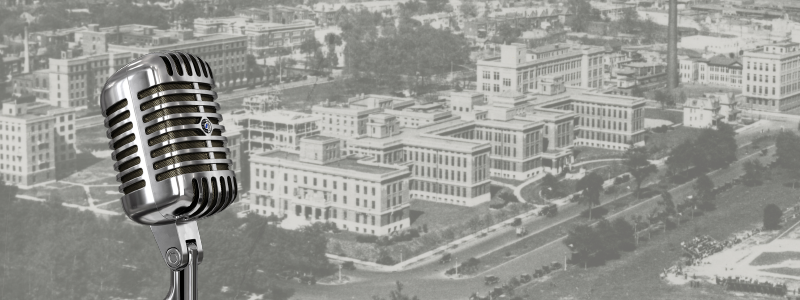
Washington University School of Medicine Oral Histories

E. V. Cowdry Oral History
Interviewer
Walter W. Walker MA, MLIS
Loading...
Summary
E.V. Cowdry was interviewed by Walter Walker on January 15, 1970 for approximately 90 minutes. [Interview 2 of 2]
Scope and Content
This interview concerns the 15th Japan Medical Congress in March-April, 1959 and the work of Dr. H. Marvin Pollard and his survey of Japanese teaching hospitals.
Biographical Information: Interviewee
Edmund Vincent Cowdry (1888-1975) was born in Alberta province, Canada, and grew up in Ontario. He studied at the University of Toronto, receiving his BA in 1909. Continuing with graduate training in anatomy, he received a PhD from the University of Chicago in 1913. He was on the faculty of Johns Hopkins University from 1913 to 1917. From 1917 to 1921, he was among the first professors at Peking Union Medical College, established by the Rockefeller Foundation in Beijing, China. From 1921 until 1928, Cowdry was an associate member of the Rockefeller Institute, the medical research center in Manhattan that is now known as Rockefeller University. Beginning with that period, he made several research trips to African countries. In South Africa, he was instrumental in isolating the organism (thereafter called Cowdria ruminantium) which causes heartwater in animals. In Tunisia, he investigated the etiology of malaria. In Kenya, his chief interest was yellow fever. E.V. Cowdry joined Washington University School of Medicine in 1928 as head of the Cytology program and co-chair of the Department of Anatomy, and for that purpose moved to St. Louis. The city became his and his family's home for the remainder of his life, although he continued his earlier pattern of extended leaves and foreign travel. He became a United States citizen in 1930. Later he became director of research at Barnard Free Skin and Cancer Hospital (1939), then an independent hospital, but which he guided toward eventual integration with Washington University School of Medicine. In 1941 he became the formal head of the Department of Anatomy (1941). Cowdry's chief laboratory research interests in those years came to focus on cancer. He was noted not only for work in the laboratory, but also for his advocacy of increased public support for programs to fight malignant diseases. He was also widely known for coordinating interdisciplinary work in gerontology and is considered today to be one of the founders of contemporary scientific approaches in that branch of applied medicine and social work. E.V. Cowdry stepped down as head of anatomy in 1950, accepting in its place the position of director of the Wernse Cancer Research Laboratory at the school. He was named professor emeritus and director emeritus of the Wernse laboratory in 1960. Cowdry remained active in research in the university and at Jewish Hospital of St. Louis until his death in 1975.
Biographical Information: Interviewer
Walter W. Walker became an archivist at the Washington University School of Medicine library in 1964. He received a BS from Hampden-Sydney College, an MA (history) from American University, and a Master’s in Library Science from Case Western University.
Interview Date
1970-01-15
Collection Identifier
OH008
Length
Approximately 1 hour and 30 minutes.
Restrictions
Users wishing to publish (in whole, or in part) content taken from the audio or transcript of this oral history interview must request, sign, and return a Statement of Use form to the Becker Archives. For detailed information regarding publication and use of this oral history, contact the Becker Archives (arb@wusm.wustl.edu).
Recommended Citation
E. V. Cowdry Oral History, OH008, Bernard Becker Medical Library Archives, Washington University in St. Louis.
Disclaimer
The Becker Archives provides access to this oral history interview as a record of the past. This interview reflects the attitudes, perspectives, and beliefs of the interview participants, which may reflect outdated, biased, and offensive views and opinions. The Becker Archives does not endorse the views expressed in this interview, which may contain materials offensive to some users.



